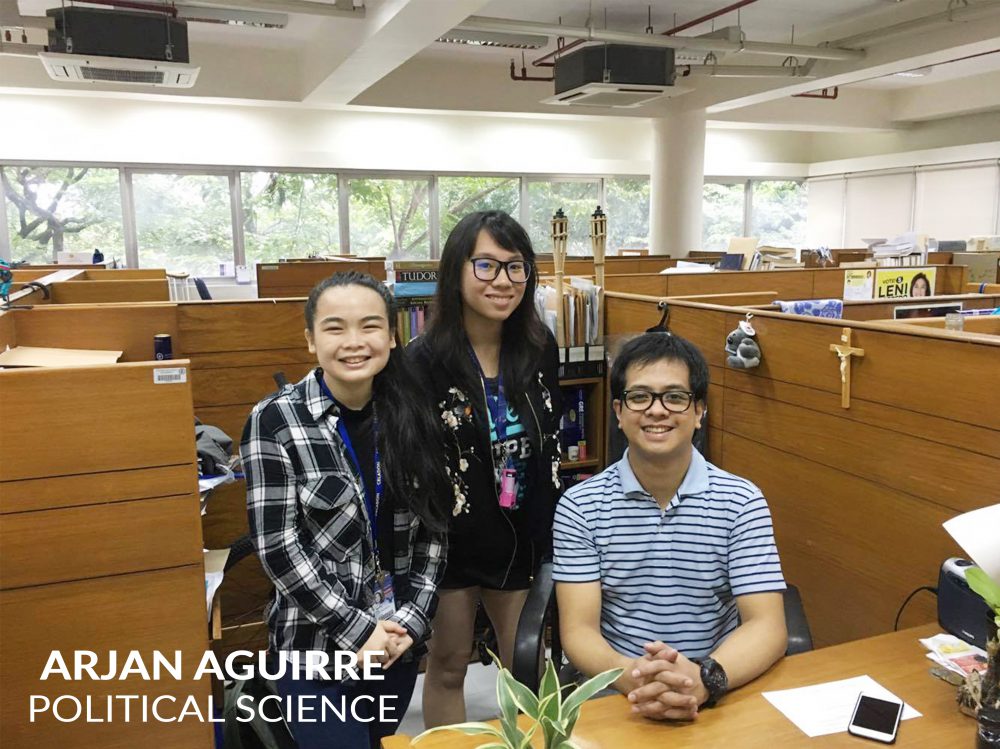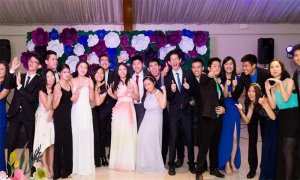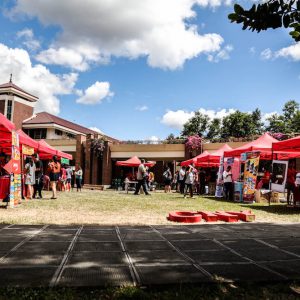Nadine Ong and Angel Chan interview Sir Arjan Aguirre, a political science professor to be featured for this year’s Teachers’ Appreciation Week. Below are some of his personal thoughts on the teaching profession.
Nadine Ong (NO): What inspired you to teach here in the Ateneo?
Arjan Aguirre (AA): There are many reasons. First, I love the passion of the students. Ateneans are very known for their intellect, wit, and passion for excellence. I noticed that because I know people who also teach in other universities, and I just realized that I’m in the right place. Second,the Jesuit tradition of teaching really values excellence, as I’ve mentioned earlier. The teachers are expected to excel [not only] in their field of expertise [but also in] handling excellent students. Also, Jesuits are popular when it comes to taking care of the [person’s in a holistic manner]. I’m a Roman Catholic, and I really adhere to this idea that we don’t just teach [for] the minds of the students, we also have to take care of their heart and totality as a person. Third, Ateneo is one of the best universities in the country, in the region. I decided to teach here in Ateneo because it really feels good to work with the best of the best: my colleagues, my bosses. I know that I’m in the right place because every day is a challenge for us — we’re survivors.
Angel Chan (AC): What do you like the most about teaching?
AA: You don’t just share the knowledge, you also learn from the students. Honestly speaking, I don’t like teaching; I’m more of a producer of knowledge. I like to contribute in the production, development, and growth of knowledge, especially in my field. Teaching teaches me to be humble. There’s a sense of humility every time you face your students. [Whenever] I deal with my students, I always realize that I’m not the best. I’m not the perfect person in class. My students are [very promising]. I’ve always had this idea that one day, one of these students [of mine] might be my boss or might lead the country. I think that’s the best thing, [the] best reason why I like teaching, or learned to like teaching. Again, it’s a humbling experience [because] it teaches me to know my shortcomings [and] pushes me to be open all the time, so I get to learn more things from my students. I only get this from teaching.
NO: With your profession comes a lot of frustration. What is the hardest thing about being a professor?
AA: Convincing my students. We are in Ateneo. We’re not dealing with normal students here. In a class, there are twenty to thirty students, and these are not ordinary students. They were chosen because of their background and performance in secondary education. [People they encounter in] the tertiary level cannot just fool [them]. You cannot just force them to accept what you are saying in class. That’s the most challenging thing, especially since I am a young academic. I really have to make sure that my students will not just learn from me, but really engage those things that I’m saying inside the classroom.
NO: What would you want your legacy to your students to be?
AA: Learning is a fun experience. You don’t just sit there and accept things as they are. Learning is a two-way thing. It should be a dialogue. Teachers should also learn that. It is two-way because learning should be a shared moment. You spend the next four or five years in this school, so it’s a fun thing because every day should be seen as a new day: full of challenging things and opportunities. Perhaps in the future, I hope my students would remember me as a person who pushed them to be who they are, and not as a person who forced them to be someone or something [they’re not].
AC: If you could give your students one advice, what would it be and why?
AA: Just enjoy your four or five years of stay[ing] here in the university. Be open to new possibilities and opportunities in life. You will encounter frustrations. Of course, we all have our shortcomings and imperfections, but you are in a university and you will always have your teachers [there] to guide you. We are [not here] to terrorize your life, we’re [not here] to ruin your future, but we are here because we want to walk with you towards your future. This is what I love about this university. We teach and learn with the students, not just teach them.
NO: Since you’re a political science professor, how do you think [your teachings] can affect the students’ everyday life?
AA: I’d like to think that I’m teaching the right things to my students. At the end of the day, I will be judged based on the outcome of these four years of training or [what my students] would do in the future. I’d like to produce a sense of freedom in my students. As a teacher I really highlight that. In the major and core subjects that I handle, [I can observe that] freedom is so misunderstood nowadays, and politics is inherently connected to that. It highlights the dignity of the person.
AC: What else are you [currently] working on?
AA: I’m a consultant of Senator Grace Poe. I also help civil society groups with various advocacies. I have so many research projects. And—I’m a teacher in the university.
Follow the Teachers’ Appreciation Week page, to know more about professors in Ateneo de Manila!
Check out these professors in Teachers’ Appreciation Week:




Pingback: Sir Ramón C. Sunico: A Discovery - Elements Magazine
Pingback: Ma’am Rina Simpas: On Self-Formation - Elements Magazine
Pingback: Sir RR Rañeses: On Freedom - Elements Magazine